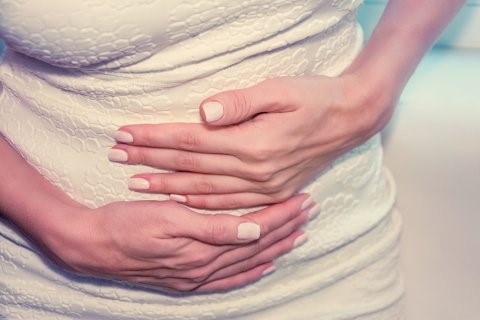Digestion is important because your body gets nutrients from the food you eat and the water you drink. Some research suggests that digestive disorders are an underlying cause of many unexplained symptoms and diseases.
Nutrients are required to grow, repair, and fuel your body. Macronutrients – carbohydrates, fat, and proteins; micronutrients – vitamins and minerals; and water are all nutrients and are therefore essential for the body to work properly and stay healthy.
During digestion:
- Carbohydrates get broken down to glucose/sugar
- Proteins get broken down to amino acids
- Fats get broken down to fatty acids
Parts of the digestive system
Mouth – the teeth break down solid foods which is then mixed with saliva. The enzymes in saliva begin the digestion of starch. Have you ever let a cracker rest on your tongue? When you first put it there, you may taste the salt. However, once it sits for a few seconds, the starch from the cracker mixes with the saliva and you will notice a sweeter taste. That sweeter taste is the breakdown of starch to glucose!
Stomach – swallowed food goes to the stomach where is mixes with hydrochloric acid and enzymes produced by the stomach’s lining. This is the beginning of the digestion of protein.
Small intestine – digested food moves from the stomach to the small intestine. Digestion occurs through the entire length of the small intestine. Carbohydrates and proteins are broken down even further and fats are emulsified before being absorbed by the intestinal wall for utilization by the body.
Large intestine – undigested material enters the large intestine. The large intestine produces and absorbs vitamins, absorbs water and electrolytes, and stores the remaining waste before it is expelled.
Liver, pancreas, gallbladder – bile from the liver and pancreatic juice from the pancreas are secreted into the first part of the small intestine. Bile works to emulsify fats while digestive enzymes in the pancreatic juices further break down carbohydrates, fats, and proteins for utilization by the body. The gallbladder stores excess bile.
Factors that negatively affect digestion
- Stress
- Eating too fast
- Inadequate chewing
- Insufficient fiber in the diet
- Late-night eating
- Certain medications
- Over-indulgence
- Poor food choices
- Drinking too many fluids at mealtime
- Food sensitivities
- Age
- Alcohol
- Smoking
- Environmental toxins
Signs and symptoms of an unhealthy or sluggish digestive system
- Difficulty losing weight
- Weight gain around abdomen
- Excess gas, bloating and belching after meals
- Constipation
- Gall stones
- Heartburn, indigestion
- Feeling full for hours after eating
- Irritable if late for or skip a meal
- Overweight
- Fatigue
- Depression
- Undigested food in stool
- Fats/greasy foods cause nausea, headaches
- Discomfort under ribcage
How to optimize digestion
- Eat small meals throughout the day
- Choose real, whole foods most often
- Consume an adequate amount of fiber
- Avoid excess water intake at mealtime
- Eat slowly and only until you are satisfied rather than full
- Sit down and eat in a relaxed state
- Chew food thoroughly
- Exercise on a regular basis
- Stay hydrated throughout the day
- Check for food intolerances
- Get adequate, quality sleep
- Avoid eating large amounts of red meat
- Eliminate late-night eating
- Avoid excess caffeine consumption
- Avoid/eliminate processed foods, alcohol, smoking and environmental toxins
If you do not see improvement with digestion after following the above recommendations, then nutritional supplementation is recommended. Please see your Naturopathic Doctor or Registered Holistic Nutritionist for recommendations specific to your needs.
If you would like more help on improving gut health, e-mail kim@livingwell-hfc.com for a free assessment to get you started.

